The mornings are crisp. The days are shorter. Tomatoes and peaches have been replaced by apples and pumpkins at the farmer’s market. And the fall books are here! Autumn is always a busy time of year for books, with publishers releasing their big titles in the hope of capturing the interest of readers shopping for the holidays or looking to curl up with a blanket and a good book as the temperatures drop. There’s something for everyone this season, with thrilling debuts, thoughtful nonfiction, stunning poetry collections, and so much more. Readers will be particularly excited to see new titles from favorite authors like Scholastique Mukasonga and Samanta Schweblin and translators like Emma Ramadan and Megan Megan McDowell. But don’t sleep on some of the new and exciting voices on this list too.
I’ve poured over the catalogs and galleys and highlighted just some of the best fall 2022 new releases in translation, and because there’s just so much to choose from, I’ve added notes for others you should seek out as well! And whether it’s just something about publishing this year or my ever constant love for works of short fiction, but there are a lot of new short story collections that caught my eye. So if you’d like to dip in and out of some incredible short fiction in what can be a busy time of year, you’re in luck.
Fall 2022 New Releases In Translation
Panics by Barbara Molinard, translated by Emma RamadanMarguerite Duras writes in her 1969 preface to Panics, “What we’ve collected in this book represents a very small portion — maybe a hundredth — of what Barbara has written over these eight years. The rest was destroyed. . . . The texts that follow were also torn to shreds.” Barbara Molinard destroyed more of her work than she saved and published only one book, this strange and surreal short story collection, saved by her close friend Duras and recovered likely from oblivion by translator Emma Ramadan in this first ever English translation. Invigorating and disorienting, this collection of stories about sickness, death, and control would be perfect for fans of Leonora Carrington. But make no mistake: this collection is absolutely its own creature. What kind of creature I’ll leave to your imagination. Complete with striking art and a stunning translator’s note, this “world of little panics” will pull you in and swallow you whole. (Feminist Press, September 13) And don’t miss The Age of Goodbyes by Li Zi Shu, translated by YZ Chin. (Feminist Press, November 8) |
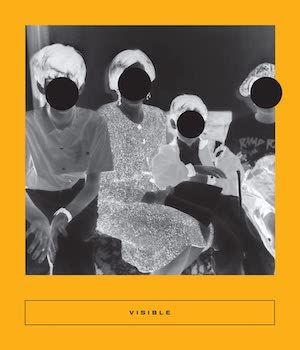
Visible: Text + Image by Verónica Gerber Bicecci, Marie NDiaye, Yi SangWoo & Others, translated by Christina MacSweeney, Emily Yae Won & OthersI’ve loved the Calico series from Two Lines Press since its inception. The series presents vanguard works of translated literature in strikingly designed ― and eminently collectible ― editions. Visible presents six works from around the world that think about the relationship between how we see, how we read, and how we write. In her opening piece Verónica Gerber Bicecci, translated by Christina MacSweeney, writes “The image-text relationship is inescapable,” and it’s this through line that shapes and bends with each new piece in the collection. Individually they are striking but as a whole, the collection is revelatory. Each image, each word, and the spaces between them, are endlessly fascinating. (Two Lines, September 27) |
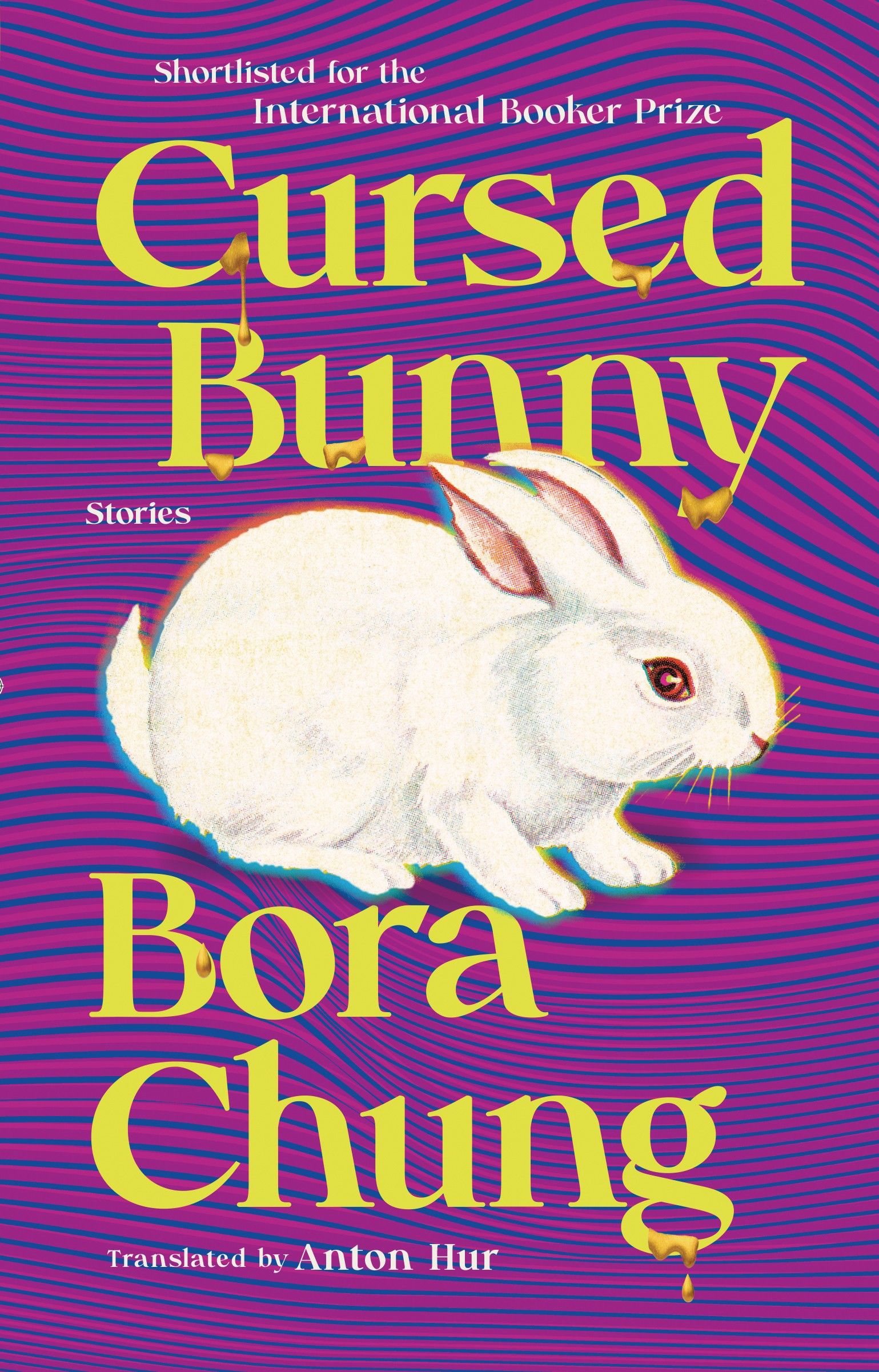
CURSED BUNNY BY BORA CHUNG, TRANSLATED BY ANTON HUR“Grandfather used to say, ‘When we make our cursed fetishes, it’s important that they’re pretty.’” While Bora Chung’s genre-defying collection of short stories won’t exactly curse you, it’s highly likely that by the time you finish this collection, you’ll be more than a little obsessed with its intense beauty. Wide ranging and varied, Chung’s stories pull from horror, science fiction, and fantasy with a powerful feminist and anti-capitalist lens. Chung has a background in Slavic literature and translates modern literary works from Russian and Polish into Korean, which is another fascinating influence on her work. Acclaimed Korean translator Anton Hur captures all of the collection’s multitudes, from its moments of sheer terror to its sharp humor and beauty. These gripping stories of power and trauma are perfect for fans of Ha Seong-nan, translated into English by Janet Hong. (Algonquin, December 6) |
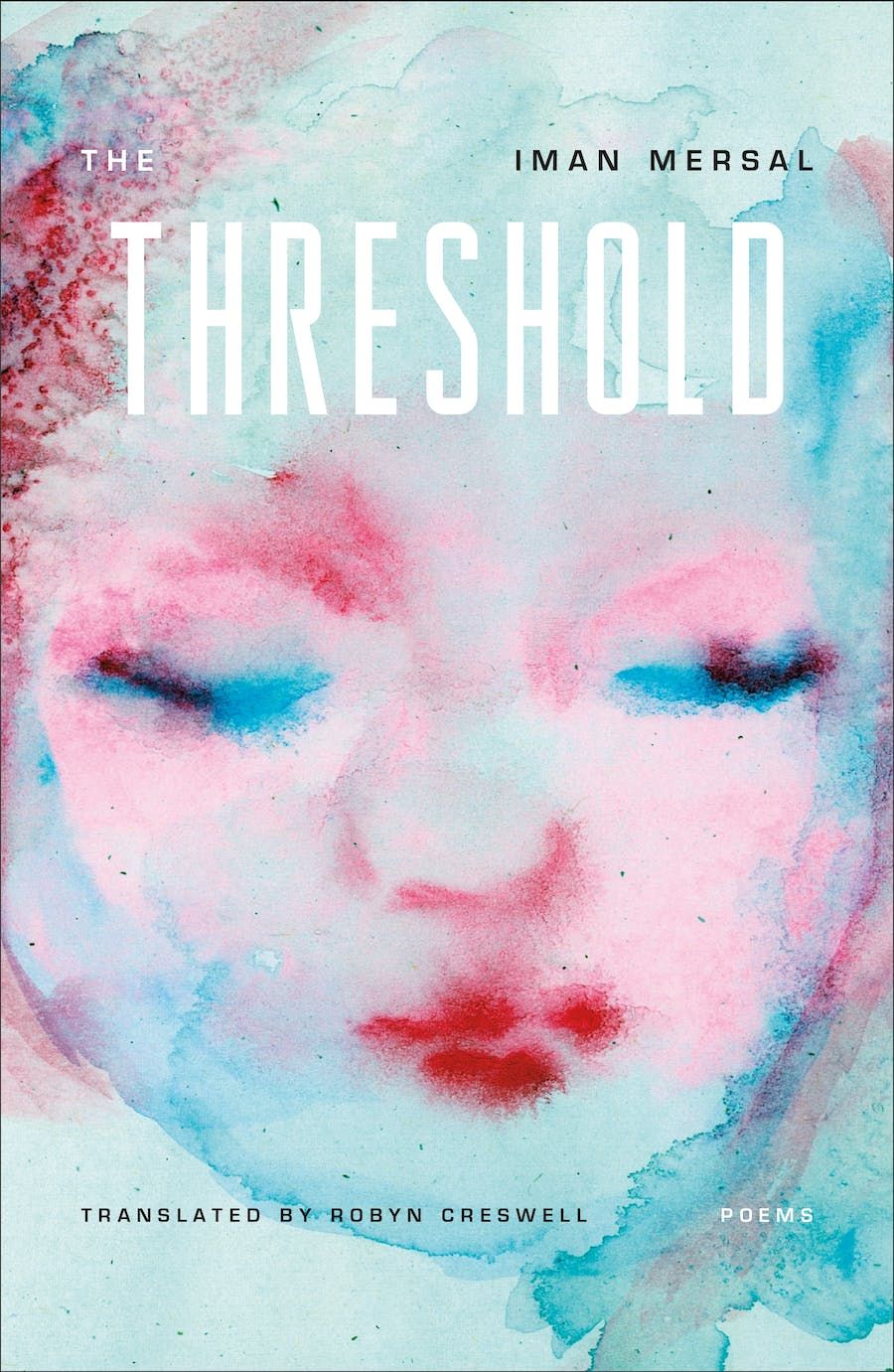
The Threshold by Iman Mersal, translated by Robyn CreswellIman Mersal is considered by many to be Egypt’s premier poet and I’d argue she’s one of the world’s foremost poets. So it is an immense joy to see The Threshold published this fall. It thoughtfully compiles work from Mersal’s first four collections, stretching over three decades, from 1995 to 2013, allowing readers to witness and experience the breadth of her immense talent. These poems trace her journey as a young outsider poet in Egypt to a new life in a different country. She writes about migration and displacement, borders and boundaries in art and in life, and so much more — all of the dirt in a life. They have been brilliantly translated in all of their ferocious vulnerability, intimacy, and complexity, by translator Robyn Creswell. This is a collection to return to, to inhabit. (Farrar, Straus and Giroux, October 18) |
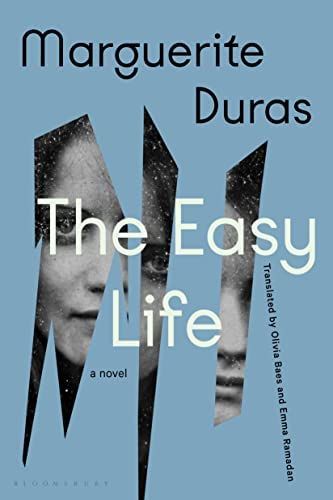
The Easy Life by Marguerite Duras, translated by Emma Ramadan and Olivia BaesI first came to Marguerite Duras’s work by way of Me & Other Writing, a collection of her nonfiction from Dorothy, a publishing project. It’s an unusual place to start reading a writer known more for her fiction, notably the acclaimed international bestseller The Lover, but I came upon it and was struck by the collection and the afterword provided by the translators, Emma Ramadan and Olivia Baes, where they discuss the process of capturing the “strangeness and mystery” of Duras, “Her incantatory rhythm that distracts you from any literal meaning, carrying you into the deep flow of her text, that inner current of genius.” And so it is a thrill to see those same translators approach The Easy Life, Duras’s second novel, published in English for the first time. First published in 1944, this foundational work is a brilliant interior novel of a young woman’s existential breakdown. What may seem like an idyllic French countryside novel is, in the hands of Duras and her masterful translators, a stunning and intense meditation on family, the self, and ultimately the mind. (Bloomsbury, December 6) And don’t miss I Want to Die but I Want to Eat Tteokbokki by Baek Sehee, translated by Anton Hur (Bloomsbury, November 1) |
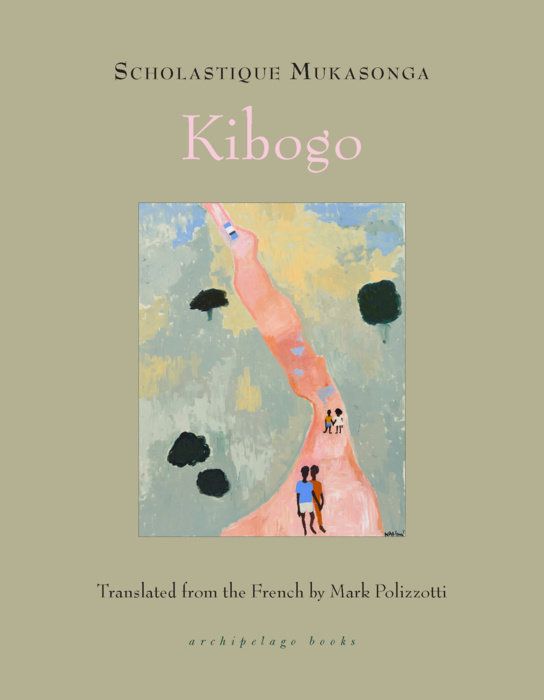
Kibogo by Scholastique Mukasonga, translated by Mark Polizzotti“And sometimes, a little girl, forgotten at the storyteller’s feet, who refused to go to sleep like the others, stored away in her memory, without really understanding them, the enchanted words of the fable.” In her new collection of interwoven stories, critically acclaimed author of Cockroaches and most recently Igifu, Scholastique Mukasonga writes of Rwanda in the 1940s, depicting the thunderous clash between ancient Rwandan beliefs and the local Christian missionaries. Women are the storytellers here and the power of storytelling and the power of women is a constant amidst the stunning imagery and cutting anti-colonial critique of this collection, translated insightfully by Mark Polizotti. An immense achievement. (Archipelago, September 13) And don’t miss Ti Amo by Hanne Ørstavik, translated by Martin Aitken (Archipelago, September 13) and Dawn by Sevgi Soysal, translated by Maureen Freely. (Archipelago, November 15) |
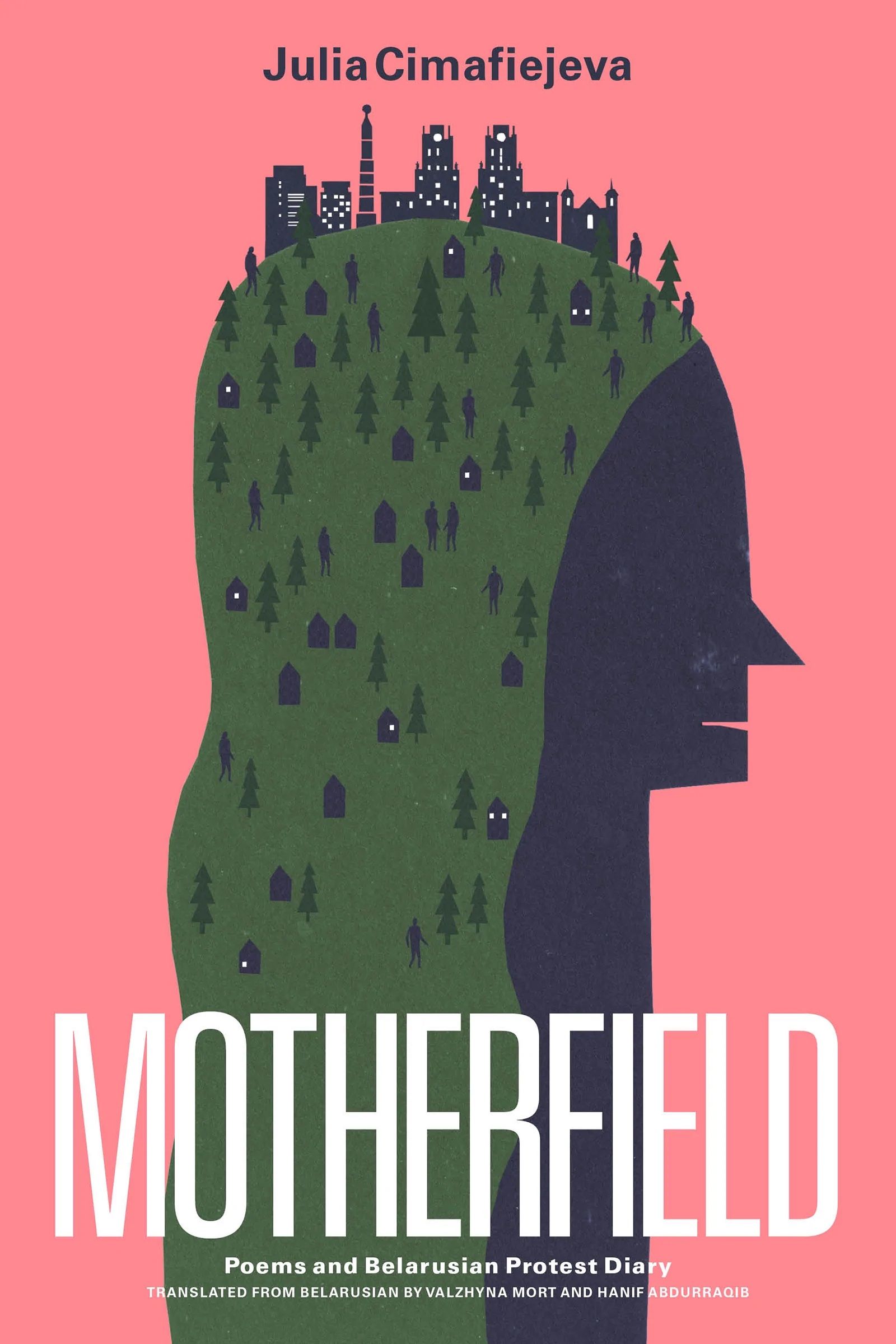
Motherfield: Poems and Belarusian Protest Diary by Julia Cimafiejeva, translated by Valzhyna Mort and Hanif AbdurraqibJulia Cimafiejeva is a Belarusian poet and translator, and the author of four poetry collections in Belarusian. She was born in an area of rural Belarus that became a Chernobyl zone when she was a child. Motherfield is her first collection to be brought into English, translated by a remarkable team of co-translators and poets Valzhyna Mort and Hanif Abdurraqib. It opens with sections from her diary from August 2020 to March 2021, where she documents her life in an authoritarian Belarus ― protests, escaping the police, internet shutdowns, the detention of her family and friends ― and then her agonizing decision to live in exile. The combination of this diary with the poems that follow only adds to the power of this collection. A devastatingly beautiful and essential read. (Phoneme Media, November 22) |
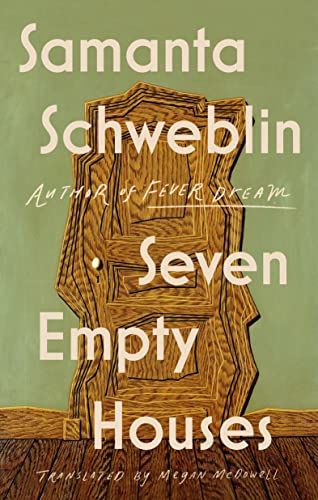
Seven Empty Houses by Samanta Schweblin, translated by Megan McDowellSamanta Schweblin, author of the literary sensation Fever Dream and more recently Little Eyes returns with her second short story collection, translated into English by acclaimed translator Megan McDowell. Like her previous collection Mouthful of Birds, I was struck by the elusive and evocative nature of her stories. In Seven Empty Houses, Schweblin focuses on the intimate, on families and relationships, and the home. But these are often empty houses, where loss, grief, and trauma live amongst the boxes and bannisters. Strange and spare, tense and uncanny, the stories in Seven Empty Houses are sure to please fans of Schweblin’s uniquely unsettling style. (Riverhead, October 18) |
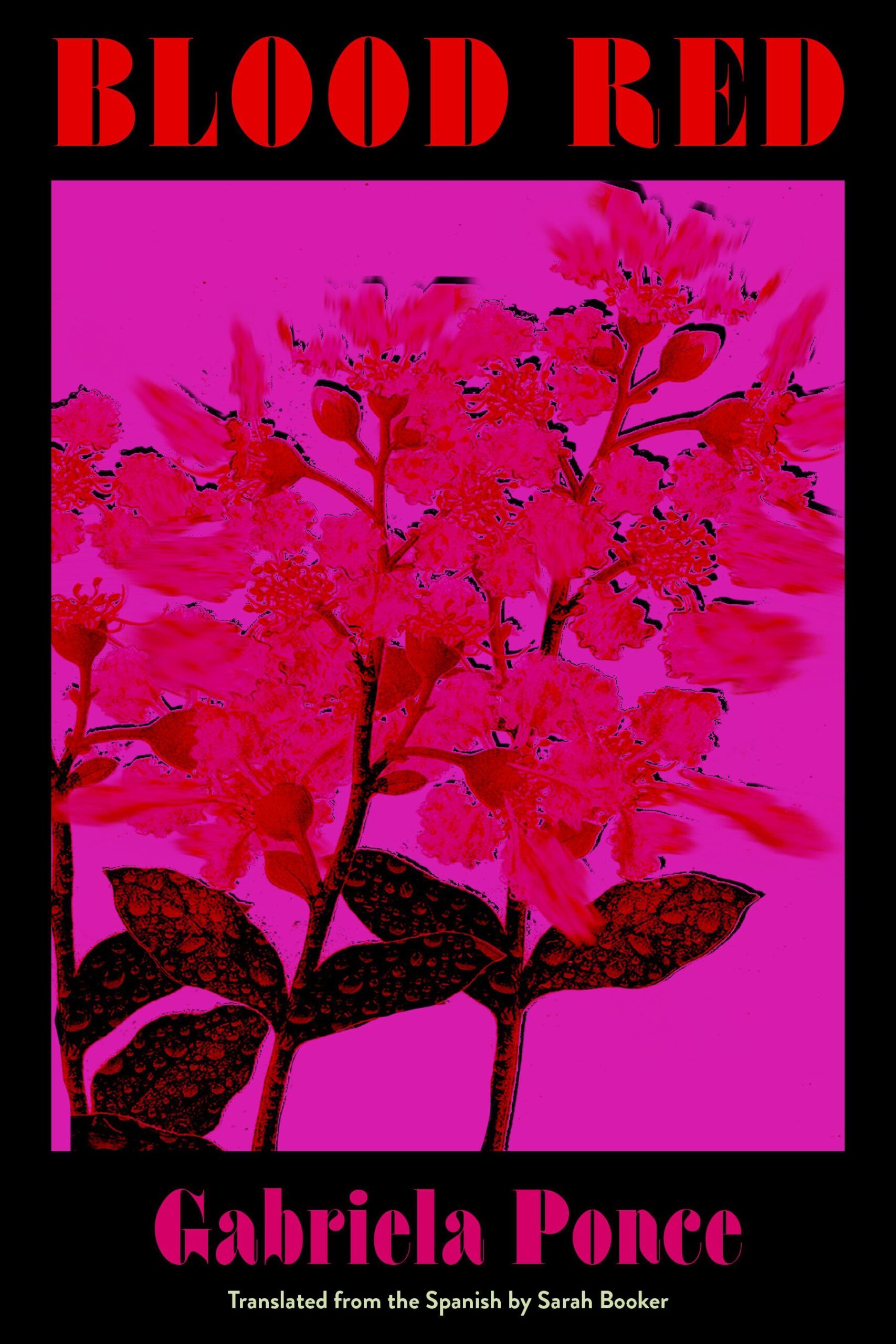
Blood Red by Gabriela Ponce, translated by Sarah BookerI have been eagerly awaiting celebrated Ecuadorian author Gabriela Ponce’s English-language debut about pleasure, pain, and power. And I can now say it utterly destroyed me. Told in a series of stream-of-consciousness fragments, the unnamed narrator of Blood Red recounts an affair, the dissolution of her marriage, and other encounters as she grasps at control over her own body. At the center of the story is the body, specifically a woman’s body, in all of its complexity ― all of its blood and sweat and sex. Ponce’s writing in Sarah Booker’s crave-able translation is dark, sexy, and relentlessly good. (Restless Books, October 4) And don’t miss The Visible Unseen: Essays by Andrea Chapela, translated by Kelsi Vanada (Restless Books, October 11) |
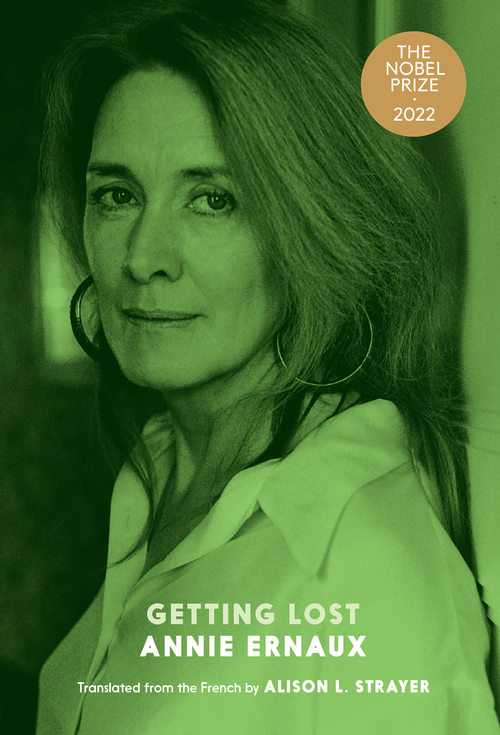
Getting Lost by Annie Ernaux, translated by Alison L. StrayerEarlier this month Annie Ernaux was awarded the 2022 Nobel Prize in literature for “the courage and clinical acuity with which she uncovers the roots, estrangements, and collective restraints of personal memory.” Ernaux is the author of over thirty works of fiction and memoir and is considered by many to be France’s most important literary voice. Newly available in English in a scintillating translation by Alison L. Strayer, Getting Lost is comprised of the unaltered diary entries of Ernaux’s affair with a married Soviet diplomat. Her novel Simple Passion was based on this affair, but Ernaux decided to publish her diary entries as well. “I perceived there was a ‘truth’ in those pages that differed from the one to be found in Simple Passion ― something raw and dark, without salvation, a kind of oblation. I thought that this, too, should be brought to light.” And there is a rawness and a darkness to it ― an intense intimacy, a relentless honesty, that makes you feel alive. (Seven Stories Press, October 4) |
For more incredible new releases in translation from this year, check out this list of Hot Summer 2022 New Releases by Women in Translation.









